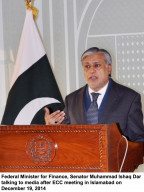
KARACHI:
As the petrol crisis engulfs more and more consumers, it sends out a fresh, but bitter, reminder of a similar predicament experienced by Pakistan not so long ago.
In June 2011, a major petrol shortage hit the country and its fallout was felt from Karachi to Peshawar. Transport came to a standstill after two of the five local refineries went out of operation due to technical and cash-flow issues. As a result, local production of petrol was reduced by 61%.
As commuters lined up outside fuel pumps, Pervez Yousoof, the then general secretary of Oil Companies Advisory Council (OCAC) was on the phone with journalists, sharing the industry’s side of the story.
And the story then is no different to what it is now. At the time, demand for petrol stood at 6,667 tons a day, while companies could manage supply of only 2,600 tons.
Even then, shortage was made worse due to delay in imports. An oil tanker called Liwa, which was carrying 35,000 tons of petrol for PSO, could not make it to the port on time because of bad weather in the Arabian Sea.
People hardly remember that episode.
Fast forward a few years and it becomes clearer that what is happening now is nothing compared to what the oil marketing companies (OMCs) and refineries faced before.
Post 2008, the industry was in an upheaval. The new government of the Pakistan Peoples Party (PPP) changed the pricing formula for petroleum products, cutting profit margins of refineries and OMCs.
Inquiries were launched into alleged manipulation in fuel price by OMCs to inflate profit. There was no stopping Rukhsana Zuberi, the PPP senator who almost single-handedly waged a six-year long crusade against OCAC.
But those were the days when OCAC had an edge in the shape of an exceptionally active public relation team.
On one side was Shell Manager External Affairs Abid Syed Ibrahim and on the other were Chevron Manager Government Policy and Public Affairs Irfan Qureshi.
Now, most don’t even know who heads the public communications department in these companies.
Despite PSO being the dominant player, these two men took the lead in defending the entire industry. Always available for a chat, they hardly let reporter hype up a situation.
Qureshi went on to become the managing director of PSO, which he headed for two years before former energy advisor Asim Hussain’s infamous overhaul of state-run companies.
Ibrahim is now the Group Crisis Advisor for Shell based in Netherlands.
The OCAC itself used to be a powerful lobby. Its role is not just limited to forecasting demand of petroleum products and arranging sufficient supply. In times of crisis, it took the lead in decimating information.
These days, OCAC is headed by Ilyas Fazil. Even though he is not new to this role, having been in same position in 2008, he has not bothered to issue a statement.
There is apparently a reason for this lack of interest. Industry officials say that OCAC has become hostage to “upstart businessmen”.
“CEOs no longer attend meetings at OCAC. None of the big boys want to sit with dealer-turned-CEO of an OMC,” said an industry official.
OCAC has 12 OMCs as its members with Askar Oil Services, Gas and Oil Pakistan and Zoom Petroleum being its latest members, which do not yet have any substantial presence on ground.
As a matter of fact, the Oil and Gas Regulatory Authority (Ogra) has issued marketing licences to 21 companies. Few of the new firms are run by one-time fuel station owners.
One has been established by a transporter and another by confectionary and dairy firm. “Anyone who has a connection in government can get a licence , that is how easy it has become to set up a company,” an angry member said.
As per the regulatory requirement, it takes only an investment of Rs100 million to set up a company.
Farooq Rehmatullah, one of the most respected names in petroleum industry, says that government needs to be careful in awarding licences.
“They shouldn’t repeat the mistake Brazil made couple of years back when 100 new firms were allowed to operate in a single year. They operated for 11 months before declaring bankruptcy, taking all the tax money with them.”
Published in The Express Tribune, January 20th, 2015.
Like Business on Facebook, follow @TribuneBiz on Twitter to stay informed and join in the conversation.






















































COMMENTS
Comments are moderated and generally will be posted if they are on-topic and not abusive.
For more information, please see our Comments FAQ